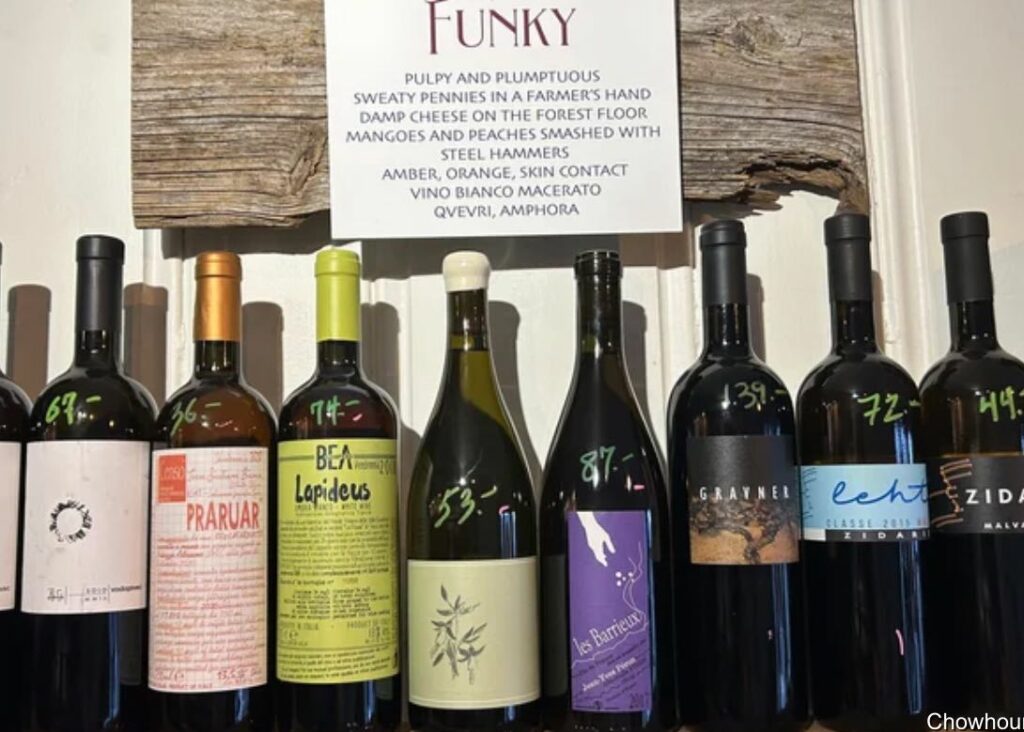
Is Your Wine Natural?
You may have encountered the term “natural” when looking for wines at your local shop or restaurant.
Initially, I thought natural was used as a play on organic.
A winemaker’s marketing ploy to entice the ecologically minded consumer, freeing the winemaker from the rigmarole required of wine growers and makers following a certified organic path.
As covered in this well-constructed piece in the publication Chowhound by Lyla Porter, “Natural Wine, Explained by a Sommelier,” my initial reaction was not wrong but also not entirely correct.

Wine is not difficult to make.
Throw grapes or juice into a container and let it be. The “natural” progression is fermentation—the conversion of sugar into alcohol. Move the fermented result off the dregs into a container, and viola, wine!
Would you find the result palatable? Probably not.
Not unlike this simplified example, the natural winemaker limits winemaking intervention.
Limited intervention typically includes not using commercial yeast for fermentation (naturally occurring wild yeasts are readily available in the ambient air), not using or limiting the use of sulfites, no fining and/or filtering for clarity, and possibly not producing what may be considered a traditional style of wine.
At its worst, a natural wine can be cloudy, effervescent, muddled in smell and taste, and short-lived.
At its best, a natural wine is uplifting and refreshing, with integrated aromas and taste components.
How is natural winemaking different from the process used by commercial producers, whether large, small, or organic? They may use commercial yeasts for fermentation consistency, apply sulfite as a preserver, fine and/or filter the wine for clarity, and possibly follow a distinct wine style, helping consumers know what they’re getting.
Further, natural winemaking has no regulatory definitions or requirements, unlike wines certified organic. Its production is totally in the eye of the winemaker or marketer. Due to this, the consistency of off-the-shelf natural wine can vary.
I’ll happily taste and drink natural wine occasionally, but I approach the endeavor with a critical eye.
In my limited wine-growing and making experiences, I’ve noted winemakers who use the natural approach as a “lazy crutch.” You don’t have to follow a standard or method, and the end result is good—no matter if it doesn’t look or taste good—because it’s “natural.”
And don’t kid yourself. Many natural wines are damn expensive.
Importantly, as with any wine-tasting experience, know what you’re drinking.

